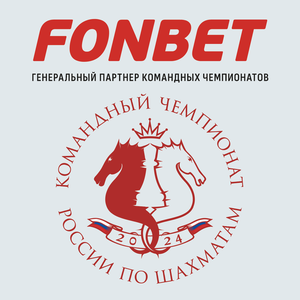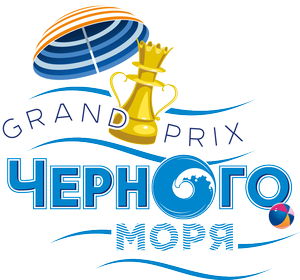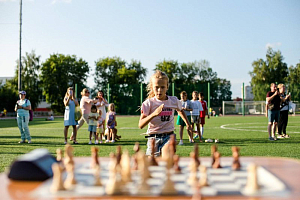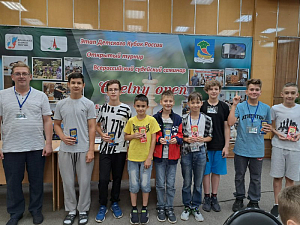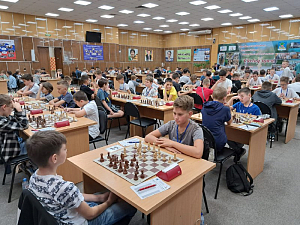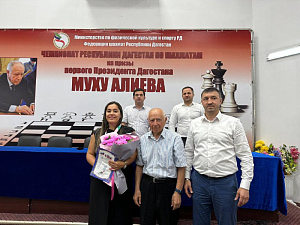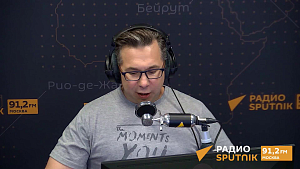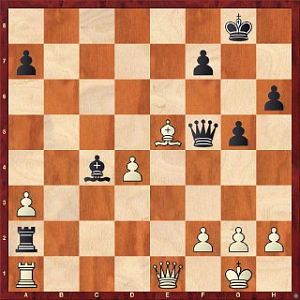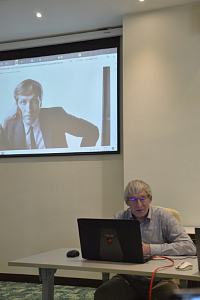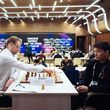20 September 2016
Nikola's Grief
The analytical review of Rounds 1-2 of the Olympiad by grandmaster Dmitry Kryakvin.
As is well known, the sunny and hospitable Baku has given start to the 42th World Chess Olympiad, a prime team competition of the modern chess. Whatever one might say, the competition is of a historical value and is looked forward to by everyone with great enthusiasm because along with the Chinese - the current holders of the Hamilton-Russell Cup - the mighty Russians and the host team, beefed up with Arkadij Naiditsch, the action is now joined by an incredibly powerful USA team, whose average rating equals to that of the team flying the tricolor flag.
"Just turn your attention to the USA team. It does not carry even a single Russian-speaking player for the first time in so many years. Virtually the same is true for Germany... We are thus likely to live up to times when the Israeli team has no Russian-speaking players either!" has been recently noted in this connection by Anna Zatonskih. However, this is not to say that we witness the Soviet chess school demise nowadays since the rising stars from different countries are coached by "our people" worldwide. Like they say, what is a rising star of the American chess? This is a talented young man from the East, who is trained by the former Soviet coaches at the expense of Jewish immigrants...
However, an Olympiad is neither a World Cup nor a European Championship. With such enormous number of participating countries you do not really expect key matchups in a first couple of rounds so that I was somewhat apprehensive whether I was going to have any material at all to write about rounds one and two. This preapprehension never materialized as the first surprise came as early as round one. To be more precise, round one could seem to be keeping many more surprises in store...
Round 1
The Sudanian Day
This is what the commentator Sergey Shipov posted immediately after: "Round one of the Olympiad happened to be a boring one. There was too much of a disparity between teems. A 4:0 score has become a trademark of the day. Impressions of the playhall and tournament organization were a lot more interesting than that. I did like the Crystal Hall as a spacious and well-designed building. It is worlds beyond the Tromsø misery of two years ago. The Azerbaijani have arranged everything in grand style. When they start building something, they do it in a fundamental way!
Here in Baku the playhall environment is not suffocating, you do not have to elbow your way through the crowd, there are no problems with toilets etc. That is, they will be able to focus on the game itself.
However, there do exist broadcasting issues. It might well be that either the number of games played is too many (the program is unable to get it processed technically), or the Internet is rather poor... maybe a combination of both."
The intrigue was also added by the fact that during broadcasting certain games were displayed with the colors reversed so that Internet started boiling with excitement: "Look, Yuri Meshkov from the ICCD team has outplayed Howell! The British are about to go down to the visually impaired team! Incredible, Iran goes down to a quad of blacks from Botswana!"
However, once the Azerbaijani programmers eliminated these inevitable minor glitches peculiar to the first round, it became clear that Iran and England were in good shape and would be scoring their expected 4-0, whereas the Bulgarians were really in train to be held to a draw by Sudan!
Abdelazeez (2183) – Petrov (2458)
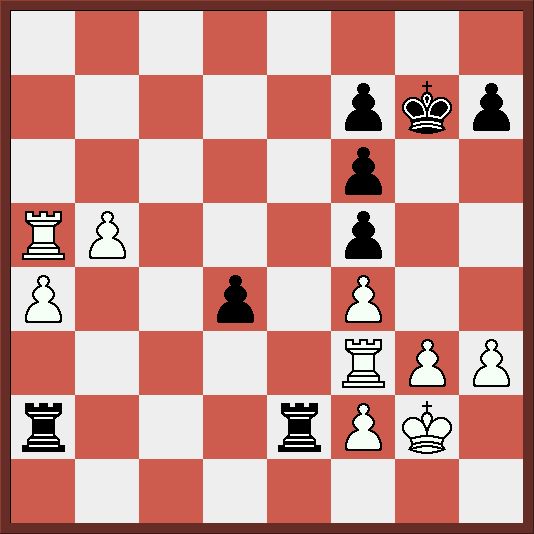
The latest few years have been far from rosy for the Bulgarian chess. Due to a conflict with Silvio Danailov, the national team is missing Kiril Georgiev, while the BCF is in the permanent thick of litigation... Shortly before the Olympiad the financial disagreements with the federation resulted in refusal from participation of such a strong player as Ivan Cheparinov. Therefore, the Bulgaria's lineup has been seriously weakened.
Although the match against Sudan began with a quick victory by Topalov, shortly after that board two grandmaster Momchil Nikolov fell to Tagelsir's onslaught (the game was commented by our friends from ChessPro). No sooner did the Bulgarians achieve their next success than they ran into yet another upset.
White is up a pawn, but the Bulgarian junior has his forces converged on the f2-square, and it looks as though a draw is inevitable...
33...d3 34.b6 Reb2??
This is a terrible blunder, 34...d2! 35.Rd5 Rxa4 should have been played instead.
35.Rb5!
In his turn, the 28-year-old Sudanese, who had played his first tournament rating game in 2015 (!!!), was as precise as a clockwork as if he had arrived at the Olympiad straight from the Mikhail Shereshevsky's training session or had just acquainted himself with one of Mark Dvoretsky's manuals!
35...Rxb5 36.axb5 d2 37.Rd3 Rb2 38.Rd5!
A cold shower for Martin! It turns out that not only White is going to keep his extra pawn, but that the black pawn "wood" on the kingside leaves Petrov with absolutely no chances of bailing out.
38...d1Q 39.Rxd1 Rxb5 40.Rd6
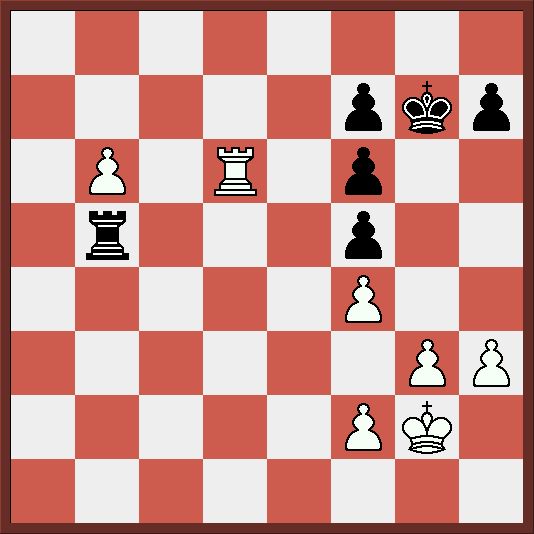
With the black king tied down to the defense of the f6-pawn, Black is down to trying to cut off the opponent's king...
40...Rb3 41.Kf1 Rb2 42.Ke1 Kg6 43.Kd1!
Mohamed comes up with a well-timed pawn sacrifice and then makes the black rook occupy a passive position.
43...Rxf2 44.Rd2 Rf1+
Or 44...Rf3 45.Kc2.
45.Kc2 Re1 46.b7 Re8 47.Rd7 h5 48.h4 Kg7 49.Rc7 Rb8 50.Kd3 As the White king heads towards his passed pawn, Black resigns. 2-2!
The Russian national teams easily won their matches with a 4-0 score, while Alexander Grischuk even got a victory by forfeit since his Nigerian opponent was not in time to arrive in Baku for round one. Apart from some draws by favorites we can also note a couple of grandmaster failures. Curiously enough, each grandmaster's name is Nicola!
Cupid (2166) – Sedlak (2537)
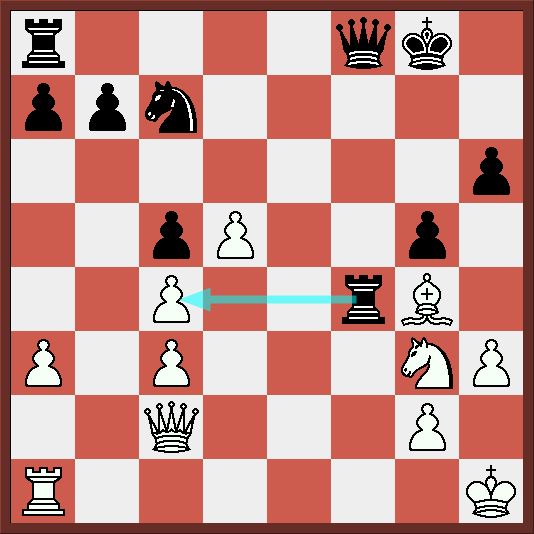
Nikola Sedlak has been recently going through hard times, and yet a resident of Belgrade was once rated over 2600 and would challenge Kramnik on board one of the Russia - Serbia match. Now that the player from Trinidad sacrificed the exchange, Sedlak only needed to opt for a preventive 27...Kh8, but...
27...Re8? 28.Qg6+ Kh8 29.Bf5
Since defending the h7-square by a heavy piece from e7 is impossible in view of the crushing blow d5-d6, the exchange had to be returned.
29…Qg7 30.Qxg7+ Kxg7 31.Nh5+ Kf7 32.Nxf4 gxf4 33.d6, and Kevin had no troubles converting his advantage. Nevertheless, Serbia ended up winning 3-1.
Djukic (2534) - Blijstra (2216)
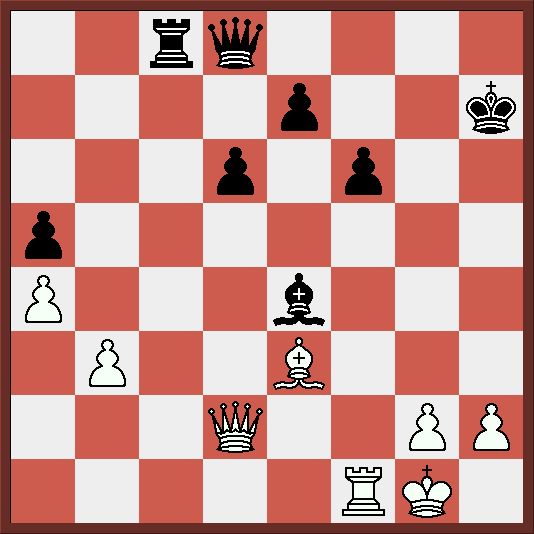
A representative of the Netherlands Antilles put up a superb fight against the Montenegro grandmaster and a perpetual check could have put a logical end to the game after 31.Qd1 Rc2 32.Qh5+ Kg7 (32...Kg8 33.Qg4+) 33.Bh6+ Kh7 34.Bd2+ Kg7. However, Djukic started "skidding" instead.
31.Rf4? Rc2 32.Qd1 Rxg2+ 33.Kf1 Qa8 34.Qh5+ Kg7 35.Qh3??
Although 35.Rg4+ Rxg4 36.Qxg4+ Kf7 37.Kf2 does not look great, can getting checkmated in two be a real alternative to that?
35...Qa6+ White resigns. Nevertheless, the disparity in class on other boards took its toll.
Round 2
A model for the Champion
Game day two generated a lot more interesting battles as, for example, the Russians were opposed by the Turkmen, who were represented by the Atabayevs clan - Maksat, Yusup and Saparmyrat - on boards one through three. You are likely to recall that at the World Cup the strongest of Atabaevs went down to Alexander Grischuk only in blitz; fortunately enough, the team of Turkmenistan was unable to come up with anything similar in this event. From the review of my colleague Vladimir Barsky you might have come to know how subtly the power of a seemingly "bad" bishop was employed by Vladimir Kramnik as well as study the Sicilian lesson by Ian Nepomniachtchi, whereas I will concentrate on the Challenger's victory.
Karjakin (2769) – Atabayev (2485)
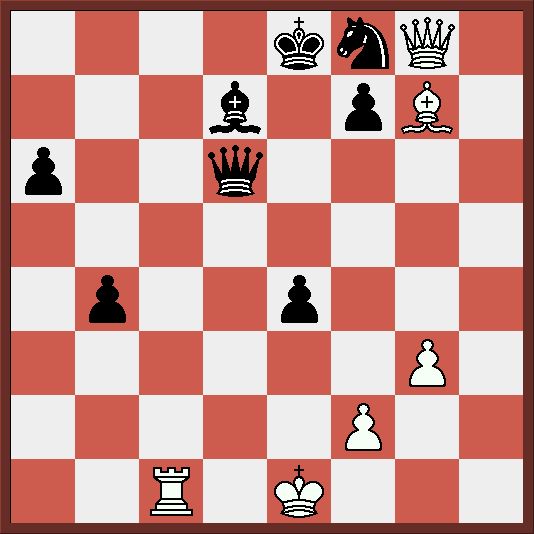
Maksat fought like a lion and had a real saving chance before the time control. 38...e3!! 39.Qxf8+ (39.Rd1 exf2+ 40.Kxf2 Qc5+ 41.Rd4 Qc2+ 42.Kg1 Qc1+ 43.Kf2 Qc2+ 44.Ke3 Qc1+ 45.Rd2 Qc5+ results in a perpetual, whereas 39.fxe3 Qxg3+ is bad for White since the black bishop cannot be stopped from joining the hunt) 39...Qxf8 40.Bxf8 exf2+ 41.Kxf2 Kxf8 42.Rc7 Bb5 43.Ke3, – while putting Black to further test is still possible, the bishop is not a weak piece, whereas the passed pawns are still on the board. Being in time trouble Atabayev decided to go after delivering a perpetual check, but his idea was not without a flaw.
38...b3? 39.Rd1 Qb4+ 40.Rd2 b2 41.Bxb2 e3 42.fxe3 Qe4 43.Qh8!
Taking the e3-pawn is impossible and the h1-square is covered. Meanwhile, the trade of queens on e5 is in the air - Sergey went on to win confidently. 4-0! Keep it up!
Starting with round two the action was joined by the World Champion Magnus Carlsen, who led the Norwegian team into the match against Bangladesh, which is, by the way, represented by four grandmasters. It should be added that Magnus' contribution was not superfluous: with Urkedal having suffered a defeat, it turned out in the end that it was Carlsen's game that proved decisive for the confrontation outcome. Number one of the world ranting list was playing White against Hossain Enamul, and the intrigue was initiated by the chess Thor as early as move one: 1.е2-е3. A variety of explanations have been offered ranging from claims about Carlsen being deliberately obscure in front of Karjakin and up to the point of Magnus advancing the white pawns only one square forward for a dare.
Let me offer you my own vision of the situation. The thing is, a female fan of the crown-bearing chess king has stepped out of the shade recently. A model from Tyumen and a former chess player Lada Berdova was eager to meet Carlsen and wrote him a letter, which was handed over through an international master and journalist Alina Bivol. Magnus replied to the letter, and his brief meeting with Lada took place at the second stage of the Grand Chess Tour. Now the audacious Berdova, laying everything else aside, skipped across to Baku... It is quite possible that a sudden appearance in the playhall of the most beautiful girl from the city of oil had the startling effect on the world champion, who just dropped a pawn halfway to e4!
In general, other favorites also won confidently with the only exception being the Indonesia - England match, in which Luke McShane was defeated by a not too titled opponent bearing an Indonesian surname Sadikin so that and the British had to exert themselves to win. In other matches with roughly equal opponents a genuine barnburner fighting was underway. Germany snatched victory from Bosnia and Herzegovina with a minimum score of 2.5-1.5, the Slovaks and the Greeks parted ways with four draws, while Baadur Jobava's squad could not overpower a significantly improved team of Iran.
Firouzja (2463) – Gelashvili (2575)
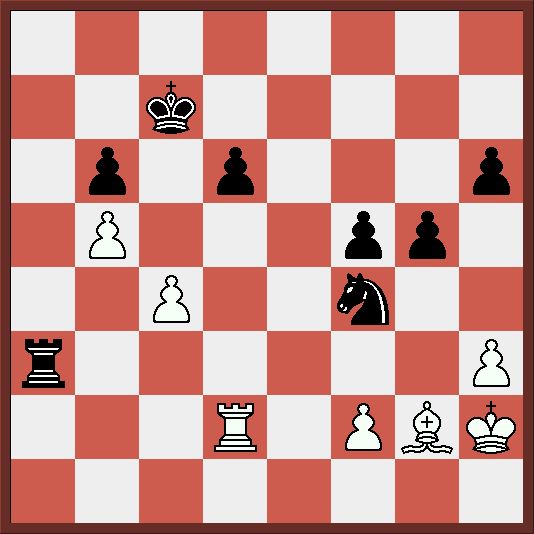
Baadur has disappointed a "veteran" of the Iranian chess Ghaem Maghami, while on other boards, occupied by the princes of Persia, the Georgians had a hard time with Mchedlishvili losing his game and no other wins scored by our southern neighbors. Huge winning chances were with Tamaz Gelashvili: Black has an overwhelming superiority in the diagram position in the form of an extra pawn and a good knight versus a bad bishop. However, the Iranian junior, known for his tenacity, managed to pull off yet another "save."
This summer, following the game with Firouzja played in a key matchup Russia - Iran at the Junior Olympiad, Andrey Esipenko complained to me: "How come he has got such a rating? Just have a look at his play. He has surrendered all key squares, does he have any first ideas at all? How stupid of me not to have defended the f7-pawn to allow him escaping with a draw..." I think Gelashvili had a lot more to say about his opponent's play at the team meeting! No sooner did he relax and go after the c4-pawn in lieu of simple consolidating moves than the Iranian showed his resourcefulness once again.
37...Rc3 38.Ra2 Nxg2 39.Kxg2 Rxc4 40.Ra7+ Kc8 41.Ra8+ Kd7 42.Ra6 Rc5 43.Rxb6 Kc7 44.Ra6 Rxb5
Tamaz must have calculated up to this moment to feel confident about being up two pawns, but it turns out that White is able to launch counterplay against f5- and h6-pawns.
45.Ra7+ Rb7 46.Ra5 Kd7 (46…f4 47.h4!) 47.Rxf5 Ke6 48.Ra5 Rb4 49.Kg3 Rh4 50.f3 Rf4 51.Ra8 Rf6 52.Ra4 d5 53.h4, and White succeeded in bailing out.
While the majority of favorites enjoy the beauties of Baku, our leaders have to face strong opponents in the women's tournament already. In round one Alexandra Kosteniuk outplayed the titled Ketevan Arakhamia-Grant (others members of the Scotland team were not so strong in comparison), while in round two our Valentina Gunina was tested by a well-known Ecuadorian player Martha Fierro.
Fierro (2369) – Gunina (2520)
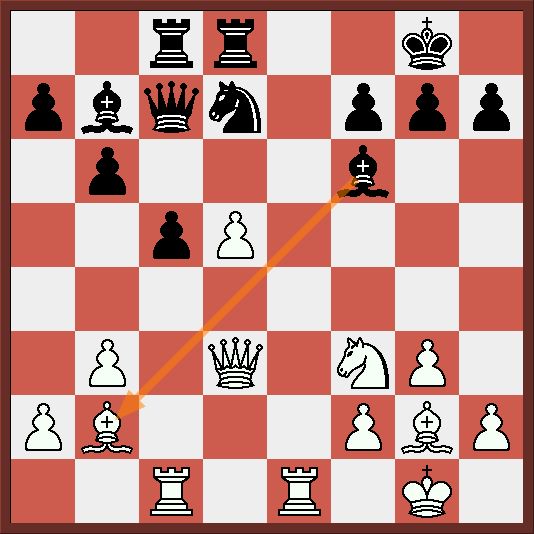
White must push forward to prove that the d-pawn is an asset rather than a liability.
18.d6 Qb8 19.Bxf6?
Had Valentina been White, she would have undoubtedly placed the rook en prise: 19.Re7! Bxf3! (bad is 19...Bxe7 20.dxe7 or 19...Bxb2 20.Ng5! Nf6 21.Rxb7 Qxd6 22.Qc4!) 20.Qxf3 Qxd6 21.Bxf6 Nxf6 22.Rxa7, keeping a slight initiative.
19...Nxf6 20.Rcd1 Rc6!, and shortly after White was deprived of her passed pawn, the stem of the position. After 21.Qc4 Rcxd6 22.Rxd6 Rxd6 23.Ne5 Re6 the game entered the phase of technical conversion.
It is a good thing that our girls have to get through challenging tasks from the very beginning. As they arrived in Baku without Kateryna Lagno, the battles with China, the Ukraine and Georgia will require the utmost mobilization. By the way, the Chinese and the Ukrainians experienced little problems adding two team points into their collection, while the world champions suffered a sensational setback by going down 1.5-2.5 to the Philippinnes. Bela Khotenashvili's calculation blunder in the ending was analyzed in detail at the ChessPro, but the last board game proved no less important for the overall match result.
Secopito (2119) – Melia (2419)
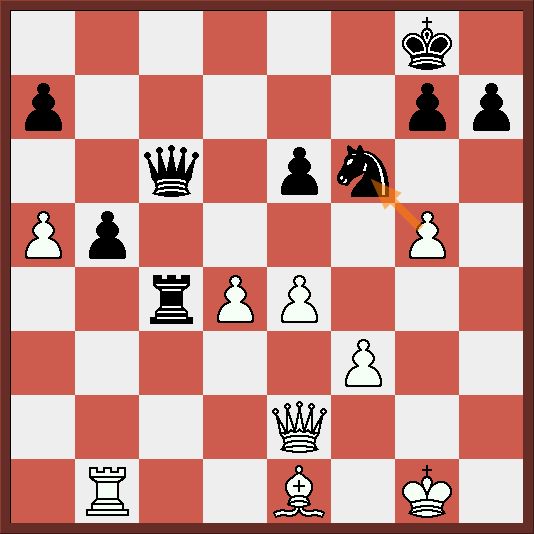
A Filipino girl with a wonderful surname attacked the knight, and it was possible to just retreat to d7, but Salome decided to contest the squares next to the white king.
31...Nh5?! 32.Qh2!
This is an unpleasant threat of taking the hanging knight and of delivering a check from b8.
32…Rc1 33.Rxc1 Qxc1 34.Qd2!
The Georgian player must have overlooked this tempo queen return since Black is worse in the ending with queens off the board.
34…Qc4 35.d5 exd5 36.exd5 Nf4?!
Chess is an amazing game. Now Black is quite well-suited by the trades and after 36...Qf4 it is close to a draw. Following the text move White creates a powerful passed pawn.
37.d6 Ne6?
More tenacious is 37...Qc5+ 38.Kh1 Nd5 39.Bf2 Qxd6 40.Bxa7, although White's passer is by far a more dangerous one. However, the d8-knight did not allow Black staying in the game much longer.
38.d7 Nd8 39.Bf2 b4 40.Qe3 Qe6 41.Qxa7 Kf7 42.Qc7 Qe7 43.Qf4+ Ke6 44.a6 Nc6 45.a7 Nxa7 46.Bxa7 Black resigns.
Introduction of the anti-cheat tournament regulation about the players visiting toilets during the game only upon prior notification of an arbiter, who is supposed to make a special entry in the records, turned into a central circumchessic topic of intrigue. I remember their attempting to introduce this regulation at the 2015 U20 junior world championship in Khanty-Mansiysk, but the Russian panel of arbiters, headed by Mikhail Krjukov, ended up being swayed towards the participants' side. Now this attempt was implemented on a much higher level. I think the underlying reasons - Gaioz Nigalidze and others using their smartphones in the toilets - are still fresh in everybody's memory.
This regulation has caused different types of reaction. A number of team captains, including Judit Polgar (Hungary), Oleksandr Sulypa (the Ukraine), Bartosz Socko (Poland), Malcolm Payne (England), Mikhail Krasenkow (men's team of Turkey), Adrian Mikhalchishin (women's team of Turkey) filed an official protest against this measure, bringing forward a number of counter-arguments. Silvio Danailov radiated with triumph, recalling the 2006 Elista match. As for the ACP head and the Azerbaijan-2 team captain Emil Sutovsky, he ignored this issue altogether when posting report on his Facebook page, "Another thing is that in terms of fighting for "gold" there is no more room for errors from the Georgian women. However, there is room for mistakes from the participants. It is so nice to see their smiling and reassured faces - thanks to the ACP efforts the "zero tolerance" rule at the Olympiad is no longer in force and the tournament has finally turned into a Holiday."
Although I fully admit that Emil is a very lucky person since he encounter only those players who never go to toilets during the game, or who were fortunate enough to get rid of all their problems before the starting pistol shot (upd. today the ACP head voiced his support of the players). We will keep track of the developments and come back to discuss it again after round four!








